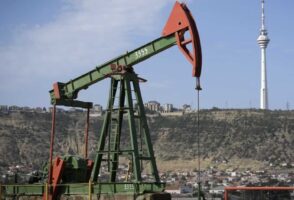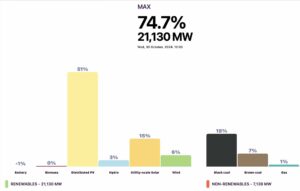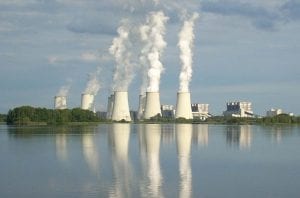In announcing plans to shut all coal-fired power plants by 2030, the new government of the Netherlands sent a dramatic signal to electricity markets today that no investment in coal-fired power in Europe is safe.
The Dutch statement is especially significant given that the Netherlands itself has only recently commissioned three of Europe’s newest coal-fired power plants, all completed in 2015.
The coalition-pact policy directive also states, importantly, that the government will introduce a binding target to cut carbon emissions by 2030 to put a floor under carbon prices.
No investment European in coal-fired generation is safe.
The Netherlands already presents a stark case to investors in new coal-fired generation in Europe —and further afield—in the massive write-downs Dutch utilities have made on the country’s three new coal plants.
Those write-downs, to around half the original value of the plants, indicate that the utilities affected, Engie, RWE and Uniper, will not make money on the investments in question.
The impairments reflect the impact of massive growth in renewable power in neighbouring Germany, which has depressed wholesale power prices, and the utilities having failed to foresee flat or falling electricity demand.
The Institute for Energy Economics and Financial Analysis (IEEFA) published a report last yeardocumenting how the three utilities had logged underpublicized impairments collectively worth billions of euros on the new power plants.
The report (“The Dutch Coal Mistake: How Three Brand-New Power Plants in the Netherlands Are at Risk Already of Becoming Stranded Assets”) concluded that political and market trends would drive valuations even lower.
Today’s announcement highlights the risk of investing in either new or existing coal-fired power, and the lesson is clear: National coal phase-out plans such as this, combined with the rise of renewables and the impact on demand of improved efficiency, put old electricity-production models at risk.
Significantly, the Dutch news highlights the risks associated with costly environmental upgrades of existing coal-fired power plants to comply with recently revised pollution standards to be implemented from 2021 on.
The new standards will require coal power plants across the European Union to meet tougher limits for emissions of mercury, nitrogen dioxide, and sulfur dioxide, some of the most dangerous air pollutants.
Where power plants presently exceed the limits, utilities will have to decide whether to close those plants or invest in upgrades, a risky approach given that coal phase-outs will very likely cut short the opportunity for operators to recoup their investment on life extension upgrades.
Utilities will do well now to consider carefully whether to upgrade older and more polluting coal power plants or focus instead on more forward-looking, high-return investments, such as in digitalization, customer services and renewables.
Source: IEEFA. Reproduced with permission.










